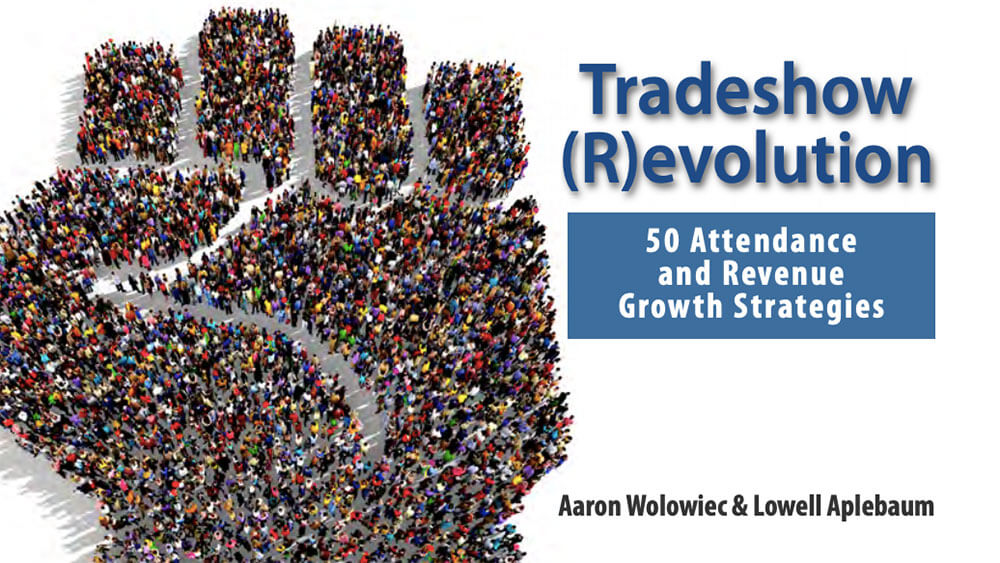The most recent report from the Center for Exhibition Industry Research included good news for anyone involved in organizing trade shows: More square feet of exhibit space, more attendees, and more revenues. While another quarter of growth for trade shows is a positive sign for the industry, exhibits are not operating in a business-as-usual environment. Consider the recent news from the organizers of Interbike, the largest bicycle trade show in the U.S., who canceled the event in 2019 and the shuffling of seasons for the North American International Auto Show in Detroit.
A number of factors influence the health of any event, but Aaron Wolowiec, MSA, CAE, CMP, CLEA, CTA, CTF/QT, CEO of Event Garde, and Lowell Aplebaum, CAE, CPF, CEO and strategy catalyst of Vista Cova, believe that the era of connectivity plays a major role in any show’s relevance. “The internet of things has enabled everyone to more easily connect, collect, and exchange data,” the two write in a new ebook titled “Tradeshow (R)evolution.” “As a result, the implicit need for a traditional trade show is waning.”
To battle that decline, the ebook offers 50 strategies for attendance and revenue growth, and one idea — arguably the most analog of them all — particularly resonated with me: A book club.
“Invite exhibitors to pick a book they think speaks to their approach or company philosophy,” Wolowiec and Aplebaum write. “Allow attendees to sign up either at registration or on arrival to the trade show for a book-club discussion group. Exhibitors can lead one or more discussions, illuminating some key points in the book and asking attendees to share their perspectives. While this may not be a direct correlation to their product, it demonstrates who the exhibitor is and opens the door for further conversation.”
The lack of a direct correlation to a product or service may be the most meaningful piece of this literary puzzle. Attendees can find every piece of information about the features, functionality, and value of a product with a simple search, but getting to know a potential business partner on a more human level is much more challenging. In addition to providing a more authentic foundation for building a relationship, the concept may offer a more lasting impression of the exhibitor, not to mention a better follow-up opportunity. I’d much rather hear from someone who gave me a book than someone who gave me a sales pitch and a branded USB drive.
Of course, exhibitors do need to weave that sales information into the conversation, too. Check out “How to Boost Trade-Show Engagement” for some helpful tips.

